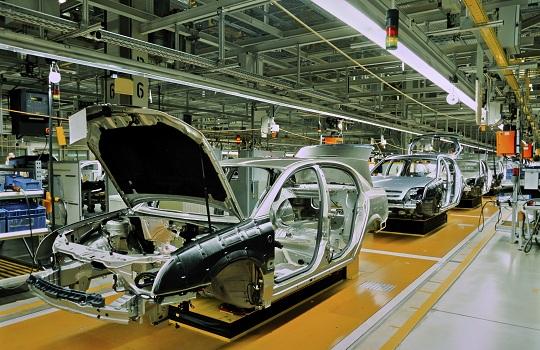Over the past few decades China has become the manufacturing centre of the world, but a trend that started in the US is filtering to UK shores as businesses are starting to bring their manufacturing bases back home. This on-shoring shift in business behaviour is of course great news for the UK economy, and has received a lot of support from David Cameron.
Recently businesses such as Raspberry Pi shifted operations from China to Wales and Symingtons, the noodle manufacturer, moved production from Guangzhou to Yorkshire. In fact it has been predicted by the RSA that by organisations on/re-shoring and choosing not to shift production abroad approximately 200,000 jobs could be created. The report also claims – “It is clear that global production will no longer be the default approach for large-scale production and that regionalisation and potentially localisation will occur in many sectors.”
So what effects will there be upon our workforce apart from a boost in jobs in the manufacturing industry?
From an employee engagement perspective there will be a vast array of benefits:
Corporate Social Responsibility
When a company announces job security or the creation of new positions it creates a positive vibe throughout the workplace and also into the community. Businesses help drive local economic growth and it delivers a knock-on effect to all in the community. Employees and their families feel a greater sense of belonging to a company when they inject capital into the long-term future of their business on their doorstep as it offers security for all.
Helping the UK economy
In addition to helping the local economy, when (for example) manufacturing is brought back to the UK, this can assist with increasing UK exports.
The most recent figures show (for the month of December 2013) that there was a £1bn gap between UK imports and exports (down from £3.6bn in November 2013). Re-shoring to the UK and then exporting goods or services can be particularly beneficial in driving down this gap. The ONS noted that a major boost in December came from exports to countries beyond the eurozone. Since July 2013 exports to countries outside the EU have increased 9.3% and imports have decreased 9.6%.
ONS figures for 2013 as a whole put exports at an all-time high but that was accompanied, however, by an all-time high in imports. For the year as a whole, the deficit on trade in goods narrowed by £0.4bn to £108.3bn.
Communications
Many employees always complain that they never know what is going on in their company. In staff surveys, communication is often one of the key areas where employees feel disengaged. For companies that have their workforce dispersed throughout the world this becomes even harder to get right. When back office and manufacturing units are side-by-side geographically it’s a lot easier for everyone to understand the issues everyone is facing and to keep up-to-date with all business developments. Of course it’s also easier when everyone speaks the same language too. You only have to think about when every call centre was located in India and it was tricky to understand one another – that’s why we all breathed a collective sigh of relief once operations returned to the UK, as it was so much easier to understand each other.
Faster response to industry
Companies with a manufacturing base in the UK selling to the home and European market can react quickly to customer demand. Here adaptations to models etc and innovative solutions can go from drawing board to factory to shop floor much quicker than before. When a company is achieving growth it creates a positive vibe in the workplace, which helps generate a sense of wellbeing for all employees.
Reputation management
Companies have become increasingly under fire for off-shoring production in the midst of economic uncertainty. In the States, Apple has received bad publicity in recent years amid reports that its outsourced labour force in China works under harsh, unsafe conditions in making the iPad. Of course there’s also the High Street clothing retailers whose name has been dragged through the mud following the Bangladeshi factory collapse with the loss of 1,100 lives. Employees want to work for reputable companies, be proud of whom they work for, understand their ethos and be proud of it. When they do, companies get incredibly engaged employees; which means they have staff who will go the extra mile and their productivity and profitability will be very strong.






